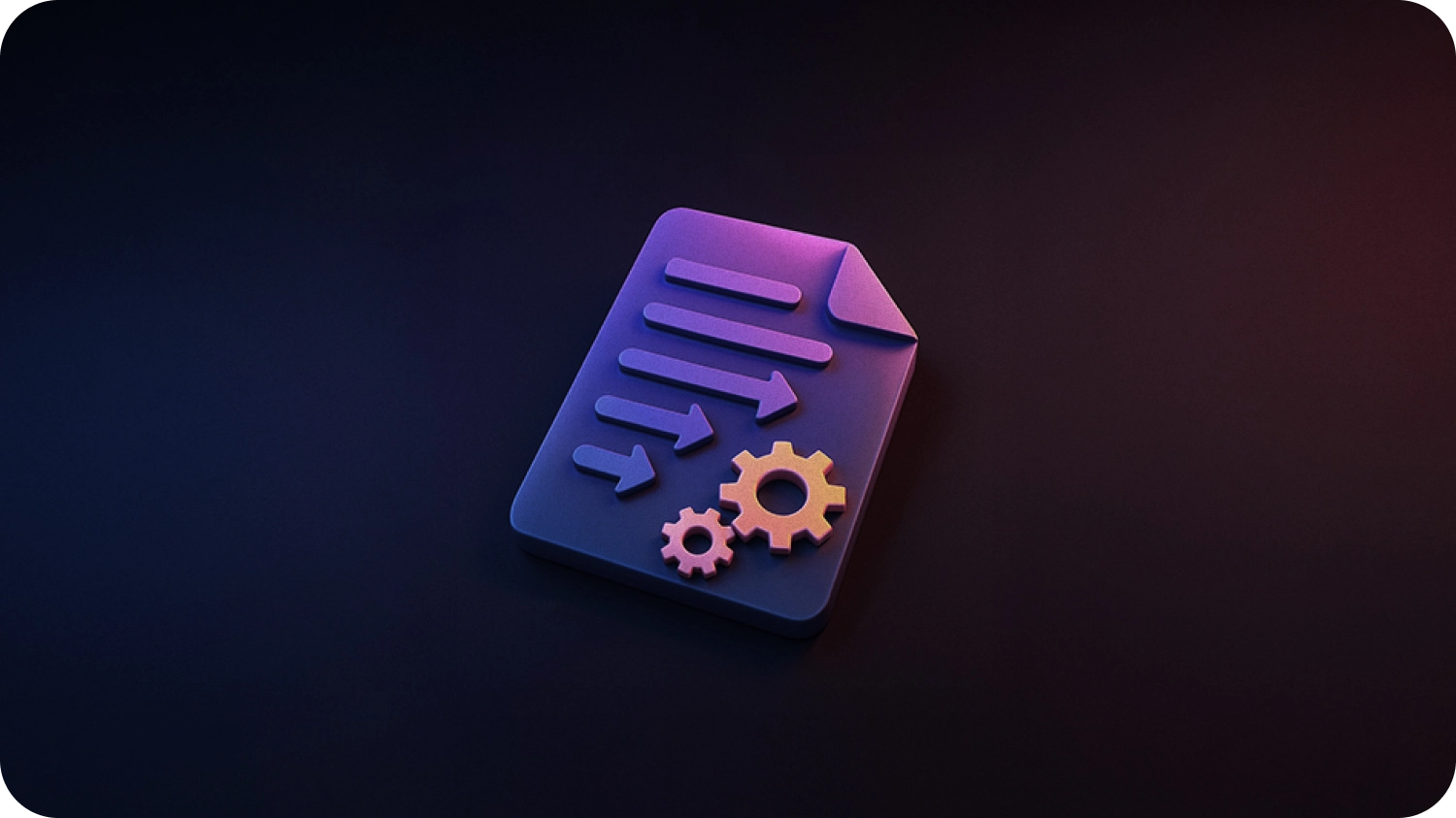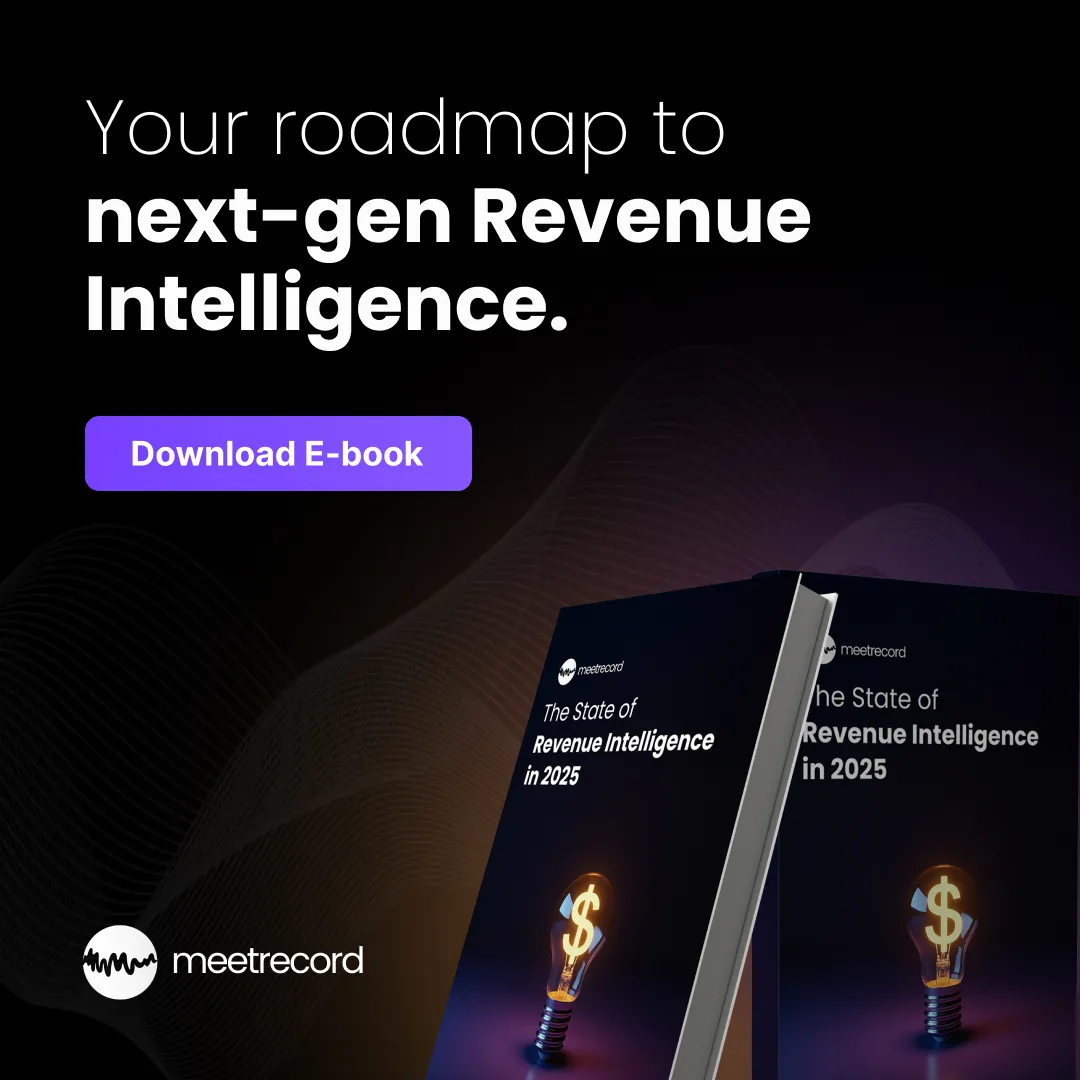The sales landscape has undergone a major transformation. What used to involve in-person mentoring sessions and brainstorming on whiteboards now takes place through screens, AI-driven platforms, and digital workflows. This shift from traditional training to a virtual-first approach isn't just a reaction to the pandemic; it's become the new norm for distributed sales teams that are looking for scalable and efficient coaching solutions.
This shift is happening right alongside the growing influence of AI and automation in sales coaching, opening up amazing opportunities to tailor development on a larger scale. As we look ahead to 2025, old-school coaching methods can’t keep up with the demands of today’s fast-moving, data-driven sales environment, so the companies that are thriving now are the ones that are using smart platforms like MeetRecord, Gong, Clari to provide consistent, data-driven coaching that adjusts to the individual needs and learning styles of each sales rep.
Why Virtual Coaching Matters in 2025?
Remote and hybrid work models have turned virtual coaching from a nice-to-have into a must-have. Sales teams are now more spread out than ever, with representatives working across different time zones and locations. Traditional one-on-one coaching sessions can be tough to manage and hard to scale effectively. With virtual coaching, skill development can happen consistently, no matter where team members are located. Plus, managers gain valuable insights into their reps' performance through recorded interactions and AI-driven analytics.
Today's buyers are looking for a more sophisticated, consultative approach to selling, which means that sales skills need to be constantly refined. Virtual sales coaching platforms offer tailored learning experiences, instant feedback, and performance tracking, enabling sales reps to quickly adjust to shifting market trends and the evolving preferences of buyers. This way the cycle is shortened, cost is saved, and accuracy stays optimum.
7 Virtual Sales Coaching Methods to Adopt in 2025
1. AI-Powered Sales Roleplay Simulations
What it is:
Virtual AI based sales simulations that craft realistic buyer personas for sales reps to practice with, while mimicking real sales conversations across various scenarios, ICPs, and situations.
Why it Works:
AI powered roleplay simulations offer a safe space for sales reps to practice their pitches, tackle objections, and fine-tune their strategies without risking actual deals. The AI adjusts to how reps respond, crafting lively conversations that reflect genuine buyer interactions.
Ideal for:
New hire onboarding, objection handling practice, pitch refinement, and preparing for high-stakes deals. This benefits both Leaders and Sales Reps as it makes the team battle ready and set to deliver output at scale.
Tools to use: AI Sales Roleplay feature creates hyper-realistic scenarios aligned to your exact ICP, allowing reps to practice cold calls, discovery meetings, and demos. Some other prominent tools include Hyperbound, SecondNature, and Quantified and MeetRecord where you get real-time feedback, and analytical insights to enhance rep productivity in minimal time.
Implementation steps:
- Developing buyer personas that reflect your ideal customer profile (ICP). This keeps the setup transparent and designed for your needs.
- Next, Use AI sales roleplay simulations based on the personas created. These simulations will directly reflect custom bots created to fit your need. MeetRecord provides it for free whereas in some other tools there’s no free tier to experience which caters specifically to your needs.
- And finally, for insights you can directly refer to the scorecards section wherein regularly monitor Rep performance on different scenarios and current leaderboard. Below is a snippet from MeetRecord playground.

2. Data-Driven Coaching with Performance Analytics
What it is:
Leveraging conversation intelligence and sales performance data to pinpoint coaching opportunities by examining real call outcomes and behavioral trends.
Why it Works:
It takes the guesswork out of coaching decisions by pinpointing the exact areas where reps can improve, all supported by solid data from real customer interactions.
Ideal for:
Performance optimization, identifying skill gaps , and prioritizing coaching efforts across sales reps for better results and precise conversations.
Tool to use:
Revenue intelligence platforms that analyze call recordings, track talk time ratios, sentiment analysis, and conversion metrics. Some noteworthy names in this area include Chorus, Jiminny, and Clari.
Implementation steps:
- First, establish your baseline performance metrics.
- Next, set up an automated call scoring system. Then, create coaching alerts for deals that might be at risk.
- Finally, develop improvement plans based on the insights you gather from the data.
3. Microlearning & On-Demand Training
What it is:
On the demand training helps you with learning modules that provide reps with the specific skills or knowledge they need right when they need it.
Why it Works:
This approach gives teams work in an agile framework and makes the feedback mechanism real-time.
Ideal for:
Key insights on product updates, competitive intelligence, objection handling techniques, and methodology reinforcement. By that we can infer inputs like competitor name mention, rate of speech, AHT(Average Handle Time).
Tool to use:
Any Revenue/Conversational tools integrable with CRM platforms will be able to deliver desirable output. Some popular CRMs are Salesforce, Hubspot, and Salesloft.
Implementation steps:
- Break down complex topics into bite-sized 5-minute modules . This way every call section will deliver output specific to topics.
- Create a playbook for reps to build confidence and specific conversational insights.
4. Real-Time In-Call Guidance & Sentiment Analysis
What it is:
Real-Time coaching insights that offer live coaching prompts, battle cards, and sentiment alerts during real sales calls.This way you have a proactive feedback mechanism than a reactive one.
Why it Works:
It assists reps in navigating tough conversations and seizing buying signals as they happen.
Ideal for:
Complicated sales scenarios, competitive deals, and supporting less experienced reps in tackling challenging discussions. Overall, it helps in building confidence and preparing reps better for performance.
Tool to use:
Conversation intelligence platforms that have real-time capabilities and can seamlessly integrate with video conferencing tools. Some big names are Gong, Balto, Substrata, MeetRecord etc.
Implementation steps:
- Firstly, set up real-time alerts for important topics/keywords. It can be an introduction speech and specific keywords for certain topics.
- Next, build libraries of battle cards, train reps on in-call tools.
- Finally, create guidelines for using support without interrupting conversations.
5. Best-Practice Libraries & Call Recordings
What it is:
A collection of top sales calls, for different scenarios, outcomes, and teaching goals to help your team learn effectively.
Why it Works:
It gives sales reps the chance to learn from AI enabled methods in an unbiased format by collaborating tried and true techniques in real life customer interactions.
Ideal for:
Sharing effective strategies, onboarding new team members, and ensuring everyone is on the same page with successful methods across the team. This in the longer run helps in building sales playbooks, coaching SOP and centralized knowledge framework.
Tool to use:
Platforms that can automatically spot and tag high-performing calls based on their outcomes and coaching criteria. The market leader in the field is Gong, although emerging platforms like Jiminny and MeetRecord are also a good option for a better ROI. MeetRecord gives you an option to create libraries wherein streams you can analyze best practices, calls, and insights to create a library of your own. This is similar to a Google Drive and can be thought of as a ‘Best Of Playlist’.
Implementation steps:
- Firstly, start by identifying the best sales calls.
- Secondly, create a searchable library sorted by topic.
- Finally, set up sharing protocols, and encourage peer learning sessions.
6. Asynchronous Video Coaching & Feedback
What it is:
This approach to coaching uses video exchanges, allowing managers to give personalized feedback through recorded calls. Reps can then ask questions or share their own practice recordings in response.
Why it Works:
This method reduces time, resource sharing, deeper engagement, and lasting learning resources that reps can revisit whenever they need.
Ideal for:
Teams that are spread out and distributed across different time zones, situations where detailed feedback is crucial, and ensuring a consistent coaching experience across various managers.
Tool to use:
Video messaging platforms that work seamlessly with sales tools, enabling threaded conversations and tracking of feedback. Some popular tools include Loom, Webex, Google Workspace, and Microsoft Teams. Conversation intelligence platforms like MeetRecord already integrate with major meeting tools and within the calls section you have the capability to add feedback to reps via threaded comments. This reduces the hassle of multiple tools and makes coaching mechanism easier from an all in one platform solution.
Implementation steps:
- Set up regular video coaching sessions with your reps.
- Compile a library of coaching materials for your reps to practice.
- Score your reps and give them specific, regular feedback.
- Consider using a conversation intelligence solution that can act as a single point of source for regular feedback and can help your reps ramp up much faster.
7. AI-Guided Call Analysis & Feedback
What it is:
AI-enabled solutions that analyze sales calls and provide structured feedback on performance, highlighting strengths and improvement areas.
Why it Works:
Scales coaching efforts by providing consistent analysis across all calls while freeing managers to focus on strategic development conversations. This in return, makes feedback non biased, and for the entirety of the dialled conversations.
Ideal for:
Regular performance monitoring, identifying coaching patterns, and providing constructive feedback from a large number of calls.
Tool to use:
Conversation intelligence platforms that generate coaching scorecards aligned with sales methodologies like BANT, MEDDIC, or SPIN. MeetRecord is capable of taking the framework of your choice and create coaching scorecards from the conversation.
Implementation steps:
- First, configure scoring criteria.
- Establish feedback delivery schedules.
- Train teams on interpreting AI insights.
- Finally, creating action plans based on analysis.
Common Pitfalls & How to Avoid Them
The biggest mistake in virtual coaching is treating it like traditional coaching. To truly succeed, you need to embrace fresh methodologies that are tailored for remote settings. Instead of bombarding your reps with a ton of tools, opt for integrated platforms that bring together various coaching methods. And remember, the human touch is still crucial; virtual coaching needs managers to be involved and to have personalized development chats.
- Data without action is just noise: Many organizations gather heaps of conversation analytics but miss the mark when it comes to turning those insights into specific, actionable coaching strategies that actually lead to real behavior change.
- One-size-fits-all strategies can backfire: Virtual coaching platforms should recognize the different learning styles, experience levels, and communication preferences to avoid creating bland development experiences that leave top performers feeling disengaged.
- Coaching frequency trumps coaching intensity: Short, regular virtual check-ins are far more effective than long monthly sessions, as remote reps thrive on consistent reinforcement to keep their momentum and accountability in check.
- Integration gaps can kill adoption: Platforms that don’t smoothly connect with existing CRM, calendar, and communication tools create workflow hiccups that can lead to the abandonment of coaching programs.
What Makes MeetRecord a Strong Fit for Virtual Sales Coaching?
MeetRecord is an Revenue Intelligence and Sales Coaching platform that enables your revenue teams to improve their virtual coaching efforts with its AI enabled sales roleplay, conversational and deal intelligence along with automated call scoring and feedback management. Below is a breakdown of MeetRecord and it’s capabilities:
- AI Sales Roleplay & Scenario-based Training: MeetRecord's AI crafts lifelike buyer simulations that adjust to your specific customer profiles, giving you endless practice opportunities without jeopardizing real deals.
- Conversation Insights & Deal Guidance: The platform automatically records and analyzes every customer interaction, highlighting coaching opportunities and potential deal risks that managers might overlook.
- Automated Call Scoring & Feedback: With AI-generated scorecards that align with well-known sales methodologies, you can ensure that your team receives consistent and objective feedback that can be scaled across the board.
- Seamless Integration in Workflow: MeetRecord integrates directly with existing CRM and meeting tools, ensuring coaching insights translate into improved performance without disrupting established processes.
Conclusion
Virtual sales coaching in 2025 is all about finding platforms that blend the strengths of AI with the subtleties of human growth. By using these eight strategies, sales teams can ensure steady skill enhancement and boost their performance, no matter where they are located or how big their team is.
MeetRecord helps you ramp up your sales reps faster with seamless integrations with your existing workflow, Real time insights, and specific use case scenarios. This keeps your team up to the task and battle ready.
Frequently Asked Questions
Virtual sales coaching is the process of training and guiding sales professionals remotely through digital platforms.
The main advantage is its scalability and consistency for distributed teams. Virtual coaching uses AI-driven analytics and roleplay simulations to provide personalized, data-backed feedback anytime, anywhere. This ensures all sales reps—regardless of location—receive continuous skill development without disrupting workflows.
AI-powered sales roleplay creates hyper-realistic buyer simulations tailored to your ideal customer profile. Reps can practice cold calls, discovery sessions, and objection handling in a risk-free environment. The AI adapts dynamically to responses, helping salespeople refine strategies, build confidence, and improve performance before engaging with actual customers.
The purpose of virtual sales coaching is to enhance the productivity of reps with the help of AI.
Virtual sales coaching offers numerous benefits, including cost-effectiveness, time-saving, increased accessibility, and enhanced flexibility.


.svg)

.webp)







